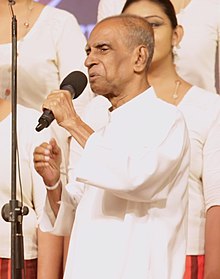
This blog is about the entrants in the year 1960, to the Faculty of Medicine, University of Ceylon, Colombo. The email address for communications is, 1960batch@gmail.com. Please BOOKMARK this page for easier access later.Photo is the entrance porch of the old General Hospital, Colombo, still in existence. Please use the search box below to look for your requirement.
Monday, December 7, 2015
Soothing a baby
The
video is almost as soothing to adults as it is to the blissed-out babies it
features: California pediatrician Dr. Robert Hamilton demonstrates the Hold, a
technique he’s honed over the years to …
http://flip.it/hmMi-
http://flip.it/hmMi-
Sunday, December 6, 2015
Amaradewa, The Maestro of Sinhala music, Sri Lanka.
--
Pera
dinayaka ma pem kala
Sannaliyane
- Amaradewa
RATHNA
DEEPA JANMABHUMI - Pandith Amaradeva 720P HD (((STEREO)))
SASARA
WASANATHURU Pandith Amaradeva 720P HD (((STEREO)))
W. D. Amaradeva
From Wikipedia, the free encyclopedia
| Pandit W.D. Amaradeva | |
|---|---|

Pandit Amaradeva in 2014.
| |
| Born | Wannakuwatta Waduge Don Albert Perera 5 December 1928 (age 87) Moratuwa, British Ceylon |
| Nationality | Sri Lankan |
| Education | Bhatkhande Music Institute Sri Sumangala College Kalutara Vidyalaya |
| Occupation | University lecturer |
| Religion | Theravada Buddhism |
| Spouse(s) | Wimala Amaradeva |
| Children | Ranjana Amaradeva, Subhani Amaradeva, and Priyanvada Amaradeva |
Wannakuwatta Waduge Don Albert Perera (Sinhalese: වන්නකුවත්ත වඩුගේ දොන් ඇල්බට් පෙරෙරා; born 5 December 1927 in Koralwella, Moratuwa, British Ceylon) better known by his adopted name Amaradeva is a Sri Lankan vocalist, violinist and composer. Primarily using traditional instruments like sitars, tablas and harmoniums, Amaradeva incorporates Sinhala folk music with Indian ragas in his work. Many consider Pandit Amaradeva’s contribution to the development of Sinhala music as unmatched.[1][2][3]
In the mid-1950s, Amaradeva in his Janagayana project consulted experts of the Kandyan dance tradition like Pani Bharata, Kiriganita, Gunamala, Ukkuva and Suramba in his path to understand what constituted Sinhala folk music. Noting that it mostly revolved around a single melody, he decided to add verses that would lead up to the central melody which would now be a chorus thus forming two parts (unseen earlier in traditional Sri Lankan music) removing restrictions that had existed earlier. In doing so, Amaradeva created a uniquely Sinhalese music style that stayed true to folk tradition while incorporating outside influences. His work was vital in the creation of the sarala gee genre practised subsequently by artists like Victor Ratnayake, Sunil Edirisinghe and Sanath Nandasiri.[4][5]
Pandit Amaradeva has been the recipient of numerous awards including the Philippine Ramon Magsaysay Award(2001), Indian Padma Sri Award (2002)[6] and Sri Lankan "President's Award of Kala Keerthi" (1986) and DeshamanyaAward (1998). In 2003 the French government awarded him the prestigious honour; Chevalier. Notably he still remains the most popular artist as confirmed by Nielsen Media Research findings[4][7] He has also represented Sri Lanka in many forums including the UNESCO 1967 Manila Symposium.
In 1972, Pandit Amaradeva composed the music for the Maldivian National Anthem (Gaumii salaam) at the request of Maldivian Government.
Contents
[hide]- 1Early life and education
- 2Career
- 3Honors
- 4Filmography
- 5See also
- 6References
- 7External links
Subscribe to:
Comments (Atom)